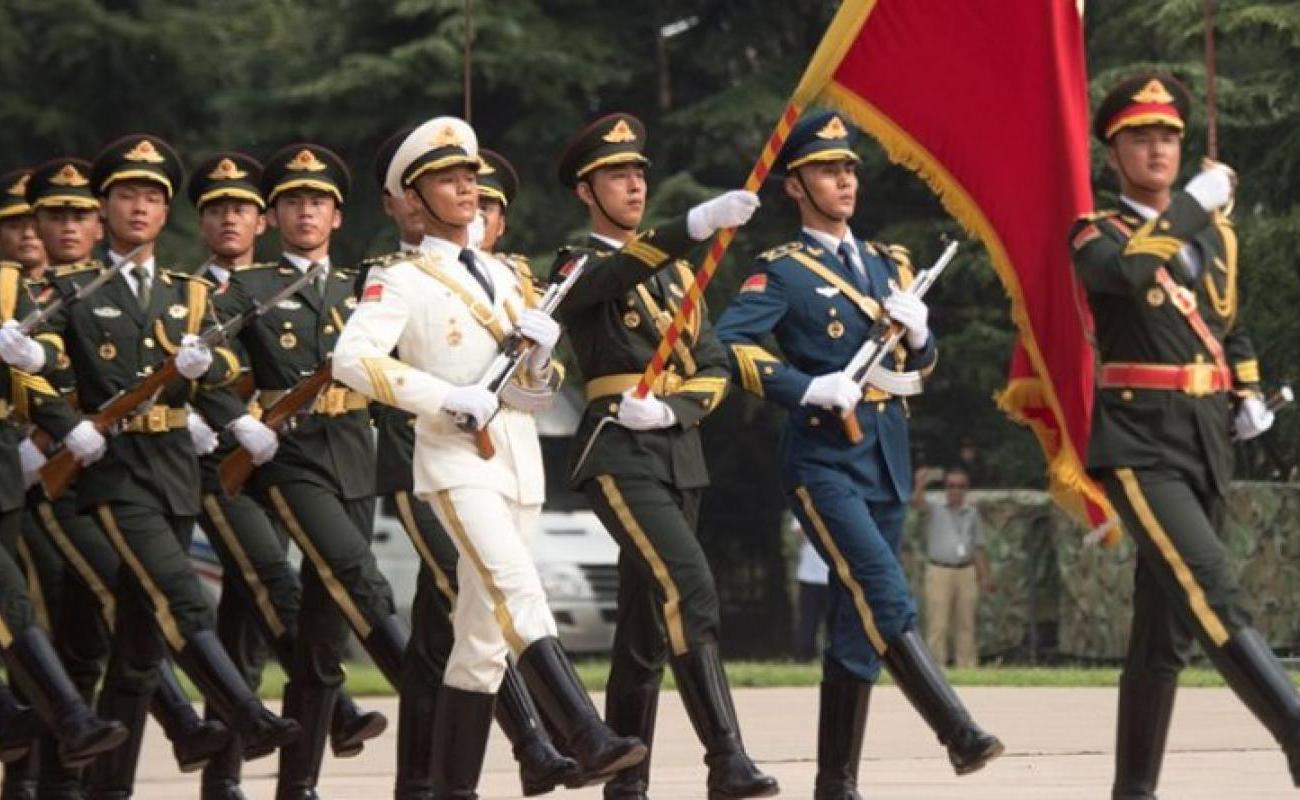China-Russia Military Ties Boosted By Invasion Of Ukraine

Russia’s invasion of Ukraine has driven military relations between Russia and China closer – and the outcome of the war could have a big impact on the future relationship, according to a new report.
“China’s decision to tacitly side with Russia despite its February 2022 invasion of Ukraine renewed fears of a China-Russia military alliance,” according to the report from the Washington-based Center for Strategic and International Studies (CSIS). “The two countries have so far eschewed a formal alliance, but they share deep military ties centering on arms sales and joint military exercises.
‘Vostok 22’ drills
Russia is also playing host to the “Vostok 22” military exercises in the east of the country. Fifteen countries are taking part, with China seen as the guest of honor. Belarus, India and Syria are among other nations attending the exercises.
Moscow said the drills involve 50,000 troops and 5,000 pieces of military equipment. The British government has cast doubt on those figures and said the true number of military personnel taking part is closer to 15,000.
China said it has sent 2,000 troops, 300 military vehicles, 21 aircraft and three warships to the drills, which began August 31 and end on Wednesday.
“The practical interaction between the Russian navy and the navy of the Chinese People’s Liberation Army has reached a new level in terms of quality. This ensures global and regional stability and security,” Rear Admiral Valery Kazakov of Russia’s Pacific Fleet was quoted as saying by Russia’s Ministry of Defense.
China is pursuing closer ties with Russia, said Bonny Lin, a co-author of the CSIS report.
Closer ties
“The military relationship is in support of the overall political relationship. So to the extent that China seeks to deepen relations with Russia, you will see more exercises. And you will see the two countries exercising even more sensitive capabilities,” Lin told VOA.
While Russian arms sales to China are also a vital component of the partnership, there are considerable “hiccups” in the relationship, according to the report’s authors.
“China imports about 70 percent of its total arms from Russia. But by the mid-2000s, China began focusing more on domestic production of its arms, so [it’s] less reliant on Russia. At the same time, Russia became more concerned about Chinese theft of its technology. More recently, in the past couple of years, most of China’s imports from Russia on the arms sales side have been to support its aircraft programs,” Lin said.
Chinese theft
The report notes that China’s alleged theft of technology has not gone unnoticed in Russia.
“In 2019, Russian state-owned defense firm Rostec alleged that there had been 500 cases of unauthorized copying of its equipment in the preceding 17 years. In a rare move, the company publicly criticized China, stating that ‘China alone has copied aircraft engines, Sukhoi planes, deck jets, air defense systems, portable air defense missiles, and analogs of the Pantsir medium-range surface-to-air systems,’” the report says.
Taiwan and Ukraine
Despite such difficulties, China is seeking deepening ties with Moscow.
“What’s happening after Russia’s invasion of Ukraine is that you’re seeing a split, a growing perception of autocracies versus democracies. And China … finds itself being increasingly viewed as very close to Russia – and potentially they’re viewed as an aggressor like Russia,” Lin said.
“China’s assessment is likely that it needs Russia more and more, as it perceives that China may find itself in a similar situation as Russia moving forward,” Lin added.
Tensions between China and the West have intensified since Beijing launched a series of live-fire exercises around Taiwan, following the visit to the island by U.S. House Speaker Nancy Pelosi last month. China claims Taiwan as part of its territory.
“Beijing is doing quite a bit of mirror imaging between what it views as the problems that Russia faced dealing with the West and NATO, and the problems that Beijing faces right now dealing with the United States and our closest allies and partners in the Indo-Pacific,” Lin told VOA.
While Russia and China have not signed any formal military alliance, the West must be alert to the growing military and political ties, Lin said.
“I’m not saying that, for example, Russia would put boots on the ground in a China conflict with one of its neighbors – but it could provide other forms of support including intelligence, including even political support,” Lin told VOA.
China surpasses Russia
The CSIS report says China’s military capabilities are catching up with or surpassing those of Russia. And as Russia’s invasion of Ukraine stalls, the authors say a Russian failure on the battlefield could lead Beijing to reevaluate its relationship with Moscow.
“If Beijing concludes that Russia’s performance in Ukraine has been bad enough, it may ultimately rethink the value of participating in joint exercises with Russia and even reconsider the overall value of strategic ties with Russia,” the report concludes.
